29.03.2021
Home / News / Literature /
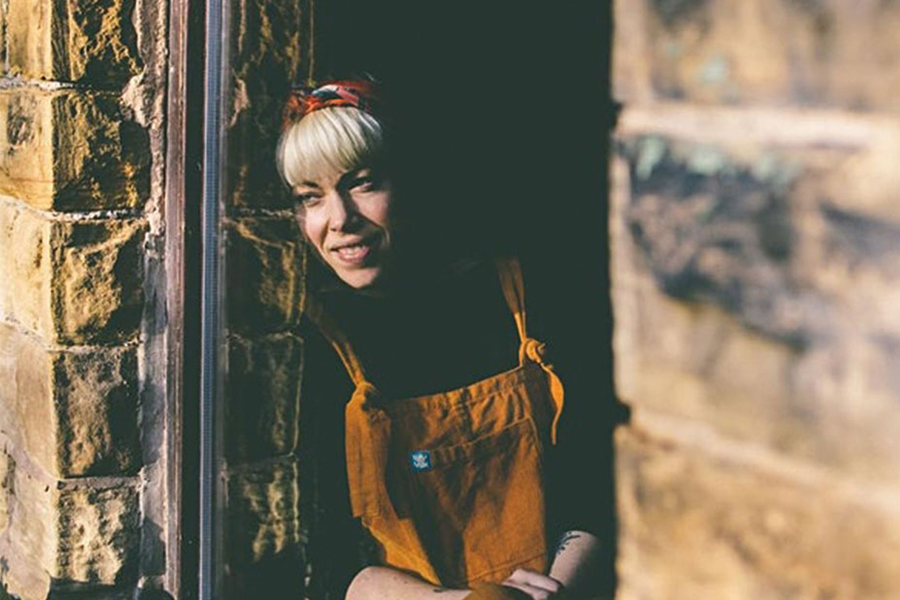
People are fascinated by where new poems come from. I think perhaps the single question I’ve been asked most frequently in my career as a writer is ‘where do you get your ideas?’. In whimsical moments, I like to pretend there’s a shop stocked with poetic prompts. I imagine it at the end of an improbably steep, twisting drive, intricate with elms, the door painted mustard yellow and the key hidden in the branches of the youngest tree. Inside, the shelves are randomly stocked. One contains items from a child’s pocket, sweet wrappers, chewed gum, rust-coloured pebbles, a bus ticket folded into an origami swan. Another contains only books in a language you do not read. On the final shelf, there’s a small mirror. You stare yourself out in the misted glass.
Of course, the shop doesn’t exist. And if it did, I doubt they’d let an irritating customer like me in. So where do poems really come from? The answer often surprises people. Some ideas choose me, they seem to arrive unbidden and insist that I explore them. Others I choose, I make an informed decision to interrogate a subject. But some ideas come from other people and these often prompt the most interesting processes of all. They’re known as commissions. In every book of poetry I’ve published, they’ve accounted for at least ten percent of the pieces included. Over the years, I’ve written for festivals, advertising campaigns, local authorities, TV, radio, individuals and even friends and relatives. I’ve approached a host of topics I never thought I’d tackle: Dante, the moon landings, car manufacturing, the impact of a pandemic. I’ve even written a poem for a tea towel (my personal favourite).
Trying to explore an idea within parameters established by someone else can be the richest, most mind expanding, eye-opening, strangely liberating thing you can do as an artist. Occasionally, it can also feel like the most frustrating and nerve-wracking thing too! For me, the process has never failed to be surprising and rewarding. Through commissioned work, I’ve been able to access language differently, connect with new people, challenge my preconceptions, explore thoughts I didn’t know I had. I’ve learned a lot about who I am as a writer, what I stand by. I have never once regretted taking on a commission. They are a joy, a delicious risk. And what’s writing (and life) without risk?
Helen Mort
A commission asks you to create a piece of work for a client or clients which responds to a particular brief. This could be a themed short story, a poem for a charity or a play for a festival; there are any number of possible commissions. You may be asked to create a commissioned piece directly or you might apply for an existing commission which has been advertised.
Commissions might be advertised by arts organisations or public bodies, local, regional or national, for example Arts Council England, Writing East Midlands or Arts Derbyshire. Collecting a list of organisations offering opportunities should broaden your list of potential options as many will have newsletters, listings and social media platforms advertising what is on offer.
When applying for a commission we would advise that you look carefully through the brief and consider:
Don’t be put off from applying if you feel you are not the ‘perfect fit’ right now. Every commission should be a learning experience, whether it is your first commission, or you are an experienced commissioned artist. You could bring exciting new ideas or approaches to the commission regardless of how confident or experienced you are.
Comments about commissions and applications:
“It should deliver against certain conditions laid out by the commissioner, as well as bringing your own creative interpretation of the subject matter.” – Rebecca Goldsmith
“Make sure the commission fits with you – what you’re interested in/passionate about. Make sure your ideas are relevant but be prepared to be flexible – the idea you start with may not be reflected in the finished piece/product.” – Emma Pass
“It is taking a client’s brief and turning it into a work that both the artist and organisation are proud of.” – Kaozara Oyalowo
“Personally, I really enjoy working to commission! I like having a brief to deliver against, and the opportunity to try my hand at something new. It’s like a puzzle – working out what it is all the various stakeholders are wanting to achieve (everyone’s agenda is slightly different) and finding a sweet spot between them that also fits with your creative practice, interests and enthusiasms.” –Rebecca Goldsmith
“My main advice would be to have confidence in your abilities and leave plenty of time to ask questions. I went to a workshop on how to apply for commission to understand what is expected and what commissioning means. A commission is not just an end product; it is a learning process. Even if the commission feels outside of your comfort zone and you don’t fully feel you have all the skill set, still apply!” – Kaozara Oyalowo
“I was really passionate about taking part in the Writing Ambitions project. For me, it felt like just the right project at just the right time. If the thought of delivering a commission makes you feel excited and enthusiastic, then you know it’s one to go for!” – Rebecca Goldsmith
“It’s important that you are interested in the commission’s topic/subject. If you are interested in a particular topic/subject but don’t see any commissions for it, don’t be frightened to approach an organisation with an idea or proposal, you could maybe work in partnership on a funding bid.” – Ioney Smallhorne
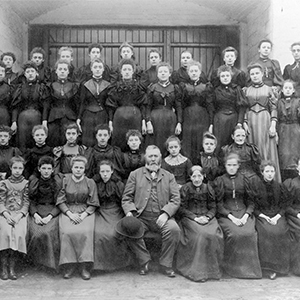
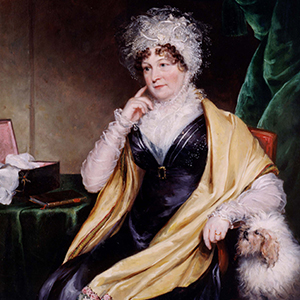
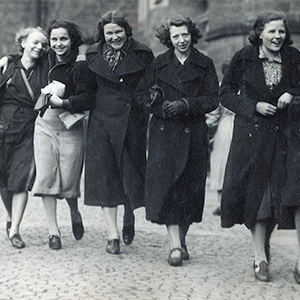
Images courtesy of Emma Pass
So, you have been successful and now have a commission, congratulations! Two of the most important aspects of your work will be communicating with your commissioner and planning your work.
It’s helpful if you can identify the main person you will communicate with or the ‘commissioner’ early in the process and work directly with them so that you are clear about what is expected. It’s a good idea to set out how and when you will communicate with your commissioner; discussing the piece gives you the opportunity to check that you are heading in the right direction and ask any questions. If other stakeholders are involved, it could be useful to speak to them also. The piece that you produce may evolve and you can prevent costly errors or disagreements by checking on your progress along the way. Consider how you will reach agreement with you commissioner that the piece is complete and satisfactory before you hand it over.
Share your outline ideas with commissioner and consider any other research you want to carry out. Look at the key steps your need to carry out including administrative tasks, any community participation involved, how you will evaluate the project and final production. Feedback from your commissioner about your ideas will help you to reach a mutually agreeable plan.
Comments about planning your commission:
“To ensure that the work is fulfilling the brief it is imperative to have clear communication with the commissioner from the outset. It is worth having a preliminary meeting or a few meetings where the commissioners’ priorities are expressed, and where you, the commissioned artist, can present initial ideas and strategies for executing the brief. Your ideas and the commissioners’ priorities need to harmonise and the agreed outcomes and plan to execute the commission need to be in writing. If anything changes, e.g. the commissioners’ priorities are altered or the artist moves away from the agreed outcome, this needs to be communicated in the first instance to ensure everyone involved is aware and happy for the changes to go ahead.” – Ioney Smallhorne
“I think research is key in developing a successful commission. It’s tempting to get carried away with the first idea that comes to you, but it pays to re-approach the project once you have all the details from the commissioner(s) and have had chance to talk through what they’re hoping to achieve.” – Rebecca Goldsmith
“Begin with a broad idea and be prepared to change this as you do your research. Make it clear to the people you are working with that this may happen. Keep people informed.” – Emma Pass
“I researched how I could use the place to provide community opportunities, this was because as part of the commission the aims were to highlight the Tapton Lock area/ health and wellbeing. I wanted to use the surrounding area to utilise the brief. I would also talk to the organisation and find out if they have ideas or previous ideas they had that worked and would like to further explore. Then create a spider diagram or list and run it by the organisation.” – Kaozara Oyalowo
“Keep a log/diary of your progress and schedule in regular updates with the commissioners. Another reason for doing this is to ensure both of your ideas harmonise. You don’t want to get to the end of the project and discover what you have produced is totally off the mark. Ask your contact at the commission if they have any leads, contacts, etc. that can help with the research process.” – Ioney Smallhorne
“The process for creating this product and the outcome may change and evolve as the project progresses.” – Emma Pass
“When it comes to creating work for the commission, it’s a good idea to have a rough timeline. Set some time aside for research, first draft production and refining and editing. It may be a good idea to schedule meetings and phone calls with your commissioner at each stage too, this will add a bit of healthy pressure to get things done. The research may take many forms; interviews, visits, reading, etc. Keep your research findings in one place, have a mind map on a wall or a drawer that only houses the research for this project. Allow time for play and experimentation for your art to evolve before focusing your main idea or product.” – Ioney Smallhorne
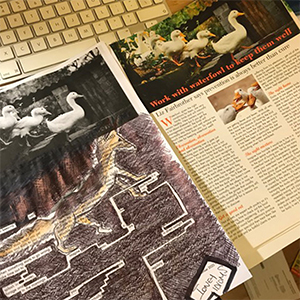
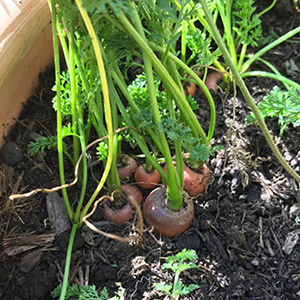
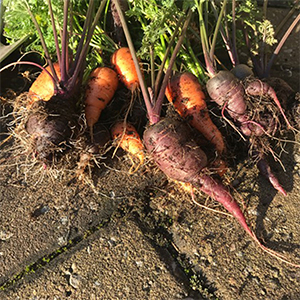
Images courtesy of Ioney Smallhorne
As we found with this project, staying flexible and adapting to change is key to working to commission. Working on a commission during the COVID-19 pandemic gave commissioned artists plenty of scope to display their ability to think creatively and adapt to change whilst also maintaining a positive attitude towards their project. To view it another way change can be a great way of learning whether it is new skills, new ways of thinking or new ways of working. It can offer new or different audiences and prepare the way for new avenues in your creative practice.
Be aware that circumstances can change and that you may need to adapt your plans due to changes to your environment, new and developing ideas and changes in your commissioners wants or needs. Good communication is of paramount importance to reduce unnecessary changes or misunderstandings and maintain a good partnership with your commissioner. It can also save a great deal of yours and your commissioners’ time.
This project required some extreme changes ranging from using technology in place of working or performing live to reimagining how the commissioned piece would work in an entirely different form. One of the positive things about adapting to change is that it can produce an entirely different, exciting new piece; sometimes this can be even better than what you originally planned.
Comments about staying flexible:
“This has been particularly pertinent this year! My original idea was for a short story which would be printed and shared at events and workshops. Due to the pandemic, it turned into a poetry-film which has been shared online. This was a huge challenge but very rewarding, and the outcome has been extremely positive. I’ve learned lots of new things!” – Emma Pass
“Be flexible, but also ensure you stick to a plan that you feel is deliverable and you are comfortable committing to within the project budget and timeframe.” – Rebecca Goldsmith
“It is important to be adaptable! It was extremely challenging because as part of the commission process, I wanted to build a connection with the different communities, and this was extremely difficult because we couldn’t do it face to face.” – Kaozara Oyalowo
“I had to be flexible and work with the commissioners to find solutions, one example of this was becoming familiar with Zoom and learning how it could be utilised for creative writing workshops. It was a great opportunity to learn new skills. Don’t be frightened when things go wrong, take a breath and get ready for the lessons ahead.” – Ioney Smallhorne
“Like most projects taking place in 2020, ours had some major changes to overcome. In spite of this, I found that raising and confronting the challenges straight away and coming up with an alternative plan was welcomed by my partner festival. I think that, as long as you stay committed to delivering against the brief in the best way you can and are willing to be imaginative and flexible in how you approach it, the commissioner will support you in the process.” – Rebecca Goldsmith
Setting boundaries at the beginning of a project can be crucial in managing it, especially when you undertake working with commissioners or other stakeholders, or even with other artists or members of the public. Again, communication is extremely important. If there are issues with or changes to the commission or its delivery, ensure that you can clearly explain your thoughts and any solution or solutions you want to present. Staying invested in your commission and taking your commissioner with you is vital. If you can set boundaries at the beginning regarding issues like your work style, time or communication methods this will be put you in a good position. It’s also good to understand your commissioner’s way of working and be able to empathise with their situation, even if you don’t necessarily agree with them.
Comments about boundaries:
“If things need to change, make sure your point-of-contact understands why, and has opportunity to give input on any change of plan. That way, they have chance to flag up any issues, and to feel invested and on-board with any alternative solutions.” – Rebecca Goldsmith
“Communication is key here. From the outset you want to establish clear communication, plan how often you will check in with the commissioner, what method of communication is best and what times of day are out of bounds. Ask if they are planning any annual leave, ask for a back-up person’s contact details at the organisation.” – Ioney Smallhorne
“It can be tricky to lay down firm boundaries in a creative project, especially if plans have to be adapted along the way, and if you’re enthusiastic about the project. Reflect on whether you feel comfortable with the level of commitment before you agree to anything and stick to your guns if the scope starts to creep.” – Rebecca Goldsmith
“Communicate with project leaders/managers. Make it clear how much time you have for the project and that it needs to fit around other work. Be proactive – if something isn’t working try to come up with an alternative and communicate this.” – Emma Pass
“Be realistic about your skillset, capacity and availability. If you feel you are being asked to do something that would extend you beyond an achievable challenge, be honest and clear about this. Keeping an open and direct line of communication is important and creating a clear and well-thought-out project plan/schedule will help prevent things from ‘mushrooming’. It can take time to get really comfortable with how much you’re able to commit and deliver, so there’s likely to be a learning curve when you’re just starting out. You might end up giving a bit more to a project than you’d anticipated, but this is also likely to present a lot of opportunity for learning and development.” – Rebecca Goldsmith
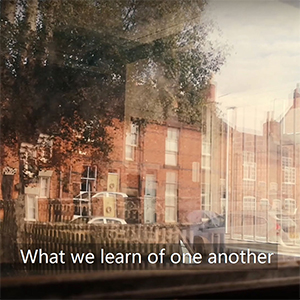
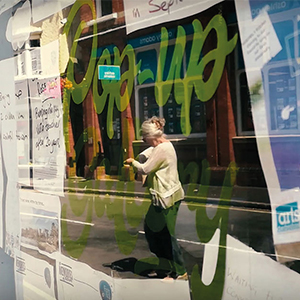
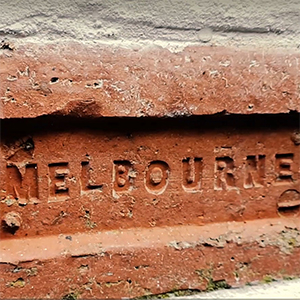
Images courtesy of Rebecca Goldsmith
Comments:
“As an artist, it is important to be open to feedback from the organisation and find the balance between injecting your own voice in the work created but also listening to what the organisation have to say about the end piece.” – Kaozara Oyalowo
“Managing your time wisely and factoring in other work.” – Ioney Smallhorne
“I would recommend that a writer should:
Comments:
“This project has given me the confidence to try more film making and poetry, both of which I had never pursued seriously before. I would also like to apply for more commissions.” – Emma Pass
“This project has had a positive impact on my writing and stepping out of my comfort zone to write something different.” – Kaozara Oyalowo
“I’ve learnt so much from this commission. I’ve pushed my own practice and have thought in greater detail about what I’m communicating through my work, and what I’m trying to achieve. Getting feedback from a mentor along the way was invaluable and gave me real confidence in the final product. Being supported by Arts Derbyshire through the commissioning process helped me to feel galvanised – it gave a sense of freedom to be ambitious, playful, and experimental with a ‘safety net’ in place! Working alongside other writers was a brilliant learning opportunity and having training sessions as part of the project helped us make the most of the commissioning process.” – Rebecca Goldsmith
“This commission has enabled me to write about things that I ordinarily wouldn’t write about. It has taught me how resourceful and tenacious I can be as I really had to rethink the project a number of times, each time coming up with new ideas.” – Ioney Smallhorne
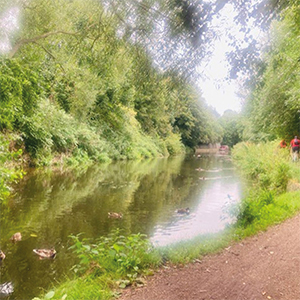
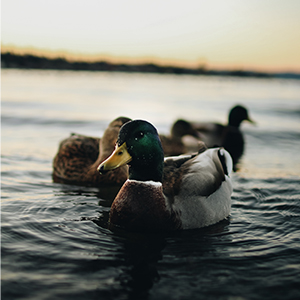
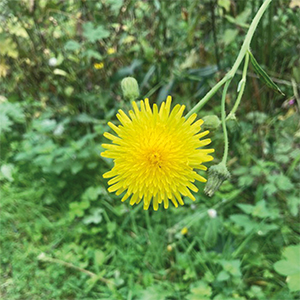
Images courtesy of Zaozara Oyalowo
Comments:
“Overthinking things and worrying too much about whether the work will be well received.” – Emma Pass
“Having and presenting too many ideas, to the point where I didn’t actually know which direction to pursue.” – Ioney Smallhorne
“Find a balance, do not overwork yourself and take regular breaks.” – Kaozara Oyalowo
“Put boundaries in place for any online engagement – it can be difficult to ‘switch off’, especially if working with platforms like Facebook and Twitter that may come through to your mobile phone!” – Rebecca Goldsmith
“Be open and honest about how you want to receive feedback, you can choose to take as much or as little as you like, but be open to it.” – Kaozara Oyalowo
“Too much research – at some point you have to stop and start creating the work! Make sure you keep a balance with your other work.”– Emma Pass
“Don’t let unnecessary anxieties or self-doubt impinge on your enjoyment of the project!” – Rebecca Goldsmith
Comments:
“This has been my first commission and it’s been a really positive experience. It has allowed me to try new ways of working which I would never have explored otherwise and boosted my confidence as a writer.” – Emma Pass
“It’s always a good idea to put down your work and return to it (if time allows), this enables you to see your work with fresh eyes.” – Ioney Smallhorne
“Next time, I would really like to actually have a meeting with the different community leaders to see what more we could have injected into the Tapton Lock project.” – Kaozara Oyalowo
“Evaluation doesn’t have to be an annoying box-ticking exercise. It can be really valuable to gather feedback on a project, and to better understand what it achieved.” – Rebecca Goldsmith
Rebecca Goldsmith (commissioned writer)
Helen Mort (mentor)
Kaozara Oyalowo (commissioned writer)
Emma Pass (commissioned writer)
Ioney Smallhorne (commissioned writer)
Marie Timbrell (project manager)
Submit your news items to editor@artsderbyshire.org.uk or fill out this news submission form.
You can also register as a member to list your arts business and events in our directory.
Find out what’s on with the Arts Derbyshire newsletter.
Artists, creatives, cultural providers, arts and health specialists – Sign up for one of our professional mailing lists.